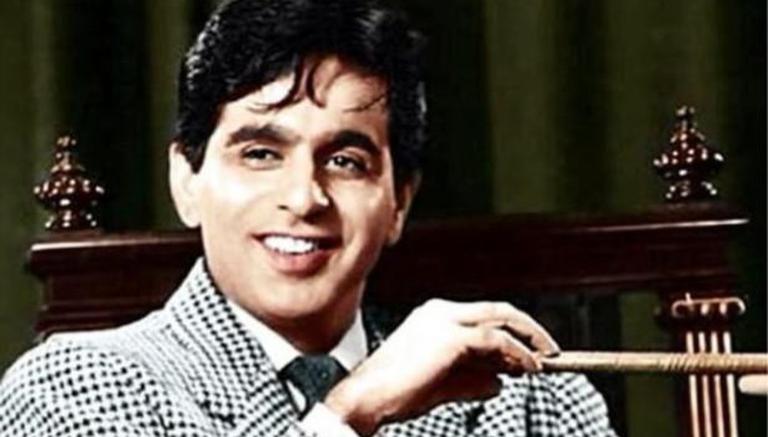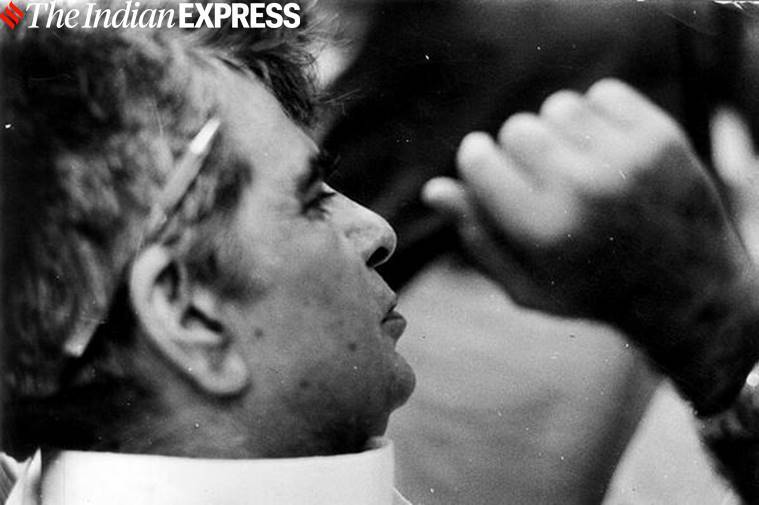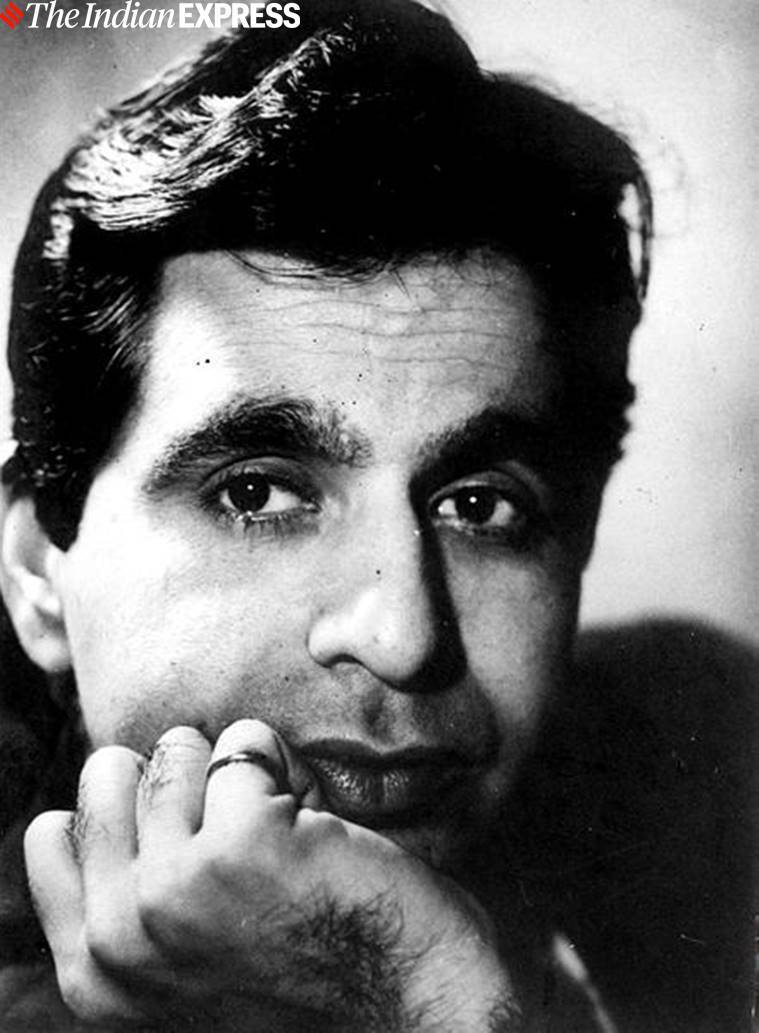
Dilip Kumar wanted to be a football player; after arguments with father, he had setup sandwich stall; he joined Indian film industry as script writer
By Nimish Dubey
An era in Hindi cinema ended when Dilip Kumar breathed his last. In acting career that spanned more than half a century (starting with Jwar Bhata in 1944 and ending with Quila in 1998), Dilip Kumar for many represented the gold standard in film acting. His trademark quiet delivery (sometimes so soft that the microphones could not pick it up), his attention to detail (running to the point of collapse to make a death scene look authentic in Ganga Jumna) and his sheer versatility made him one of Indian cinema’s monuments. So as the mortal world bids farewell to the man so many revered as “Yusuf Sahab”, here is a look at some lesser-known facts about him:
That voice was not for the camera
One of the hallmarks of Dilip Kumar’s acting was the gentle, almost understated manner in which he delivered his lines. Contrary to what many believe, this was not a style adapted for the cameras. Kumar says he actually was very soft-spoken in real life as well. He credits his parents for this, pointing out that his mother was very gentle and his father never shouted even when he was upset.
A Raj Kapoor discovery
Well, in terms of strict historical accuracy, Dilip Kumar was the biggest star to be discovered by Raj Kapoor. Mind you, Raj Kapoor was not a filmmaker himself at the time. The two lived close to each other and went to the same college (Khalsa College). And evidently it was then that Raj Kapoor told Yusuf Khan, “You can be a star.” If ever evidence were needed that Raj Kapoor could spot a star…
 Cinema killed the football star
Cinema killed the football star
For all the star-ry advice from Raj Kapoor, Dilip Kumar actually wanted to become a good football player (his father wanted him to focus on chess – not the first time they would disagree). He was a very good player at school, and was the secretary of his school’s football association, but well, reel life had other ideas!
Nomenclature by another legend
As many know, Dilip Kumar was born Mohammed Yusuf Khan. He changed his name to Dilip Kumar on the advice of Hindi film legend, Devika Rani, who had hired him for Bombay Talkies, which is another story (and another point). He would however be known as “Yusuf Sahab” to many people.
He could sing
Although best known for his acting skills, Dilip Kumar was known to sing well too. He, however, sang only once on screen – in Musafir (1957), where he sang “Lagi nahin chhote rama kahe jiya jai”. Many were struck by how similar his voice sounded to that of the man who sang so often for him, Talat Mahmood.
…was hired initially as a script writer
His proficiency in Urdu got him a job in Bombay Talkies (owned by the legendary Devika Rani) in 1942, as a script writer. He was hired at Rs 1,250 per month. Little did they know he would make uttering lines as great an art as writing them.
 …and was a dab hand at selling sandwiches
…and was a dab hand at selling sandwiches
An argument with his father saw Kumar going away to Pune. He set up a sandwich stall there and did very good business too, saving up a princely sum of Rs.5000 before heading back home.
Handy around the house
The legendary thespian had a knack and penchant for fixing things around the house. From trying to repair a refrigerator rack with a clothes hanger to obsessively cleaning his shoe rack, Dilip Kumar was a busy person at home. He is also believed to have wreaked havoc at home once, pursuing cockroaches with a spray gun, according to his better half, Saira Banu. And yes, his legendary attention to detail extended to housekeeping.
Inspired by another Kumar…Ashok!
Dilip Kumar’s tenure at Bombay Talkies coincided with the launch of perhaps Hindi cinema’s first real blockbuster, Kismet in 1943. It starred Ashok Kumar, who was a big star at that time. Dilip Kumar was introduced to Ashok Kumar by Devika Rani, and would watch Ashok Kumar acting carefully. He credits Ashok Kumar with giving him the advice which became his guideline for acting: “Acting is all about not acting.”
Bossing the Filmfare Awards
The famous Filmfare Awards were first presented in 1954. And the first person to win the Best Actor award was Dilip Kumar for his work in Daag. He won the award eight times (a record he shares with Shah Rukh Khan), and is the only one to win the award three years in a row (from 1956 to 1958 for Azaad, Devdas and Naya Daur). He was nominated in every decade in which he was actively acting – his last nomination came for Saudagar in 1992.
Dilip Kumar of Arabia? You never know
He never acted in a Hollywood film, but Dilip Kumar had his chances. His most notable opportunity came when he was offered the role of Sherif Ali in David Lean’s epic film Lawrence of Arabia. Kumar turned down the role, which went to Omar Sharif. In his autobiography, Dilip Kumar would say that Omar Sharif did a better job than he would have. Of course, that is open to debate. There was also some talk of his being cast opposite Elizabeth Taylor in a film called Taj Mahal, but not much was heard of it. Hollywood’s loss was India’s gain.
The only Indian to win Pakistan’s highest civilian award
An Indian winning Pakistan‘s highest civilian award? That too in the tension torn times of the 1990s? Well, Dilip Kumar was awarded the Nishan-e-Imtiaz in 1998. The award itself kicked off a fierce controversy with a few political parties getting involved, but Kumar ultimately received it. He remains the only Indian with that honour.
Could have been Chanakya
Many of his projects got shelved, but perhaps the most famous of them was BR Chopra’s Chanakya-Chandragupta, in the mid-seventies. It featured Dilip Kumar in the role of Chanakya, Dharmendra as Chandragupta and Kabir Bedi as the Greek general Selucus. The film was much hyped, so much so that Dilip Kumar’s make-up as a bald Chanakya was promoted as a special photo feature in a leading magazine. However, the film was never made.
Dilip Kumar had a keen ear for language and diction. He could speak Hindi, Pashto, Urdu, Punjabi, Marathi, English, Bengali, Gujarati and Persian, and was also fluent in Bhojpuri and Awadhi. He actually acted in a Bengali film, Sagina Mahto (1970), and so fluent was his Bhojpuri in Ganga Jumna that Amitabh Bachhan was amazed that a person who was not from Uttar Pradesh could speak it thus. Incidentally, it is rumoured that Dilip Kumar repeatedly told playback legend Mohammad Rafi to mind his diction while singing for him – evidently Rafi’s pronunciation was a touch too Punjabi for him.
The tragedy of the “Tragedy King”
Dilip Kumar became legendary for his tragic roles in films, often playing roles which sometimes moved the audience to tears. These performances earned him the title “Tragedy King.” However, this was a mixed blessing. In an interview, Kumar said that unlike other actors like Laurence Olivier who got tragic characters later in their careers, he got them when he was very young. And this affected him mentally. “They say act like your mother has died….Doing this every year or in every film can have an impact on you,” he would say in an interview. He called acting in tragic films almost like a punishment and even had to consult a psychiatrist for help, as it adversely affected him. Many believe that this is the reason he turned down Guru Dutt’s Pyaasa, as he had just finished Devdas, which had exhausted him emotionally and left him feeling very depressed.
_______________________
Courtesy: Indian Express
